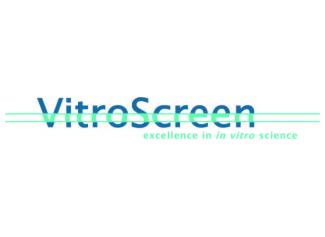
Constantin Rojahn
Constantin joined BlueGem Capital Partners as an Investment Manager in 2017.
He is involved in deal sourcing and deal execution across Europe and is on the Board of QMS Medicosmetics.
Prior to joining BlueGem, Constantin spent nearly four years at TA Associates, with a focus on investments in the consumer sector across Europe. Constantin started his career in Investment Banking at Goldman Sachs in London.
Constantin holds a BA in Economics & Management from Bocconi University in Milan.

Chris Hand
Dr Chris Hand has 30 years’ experience in the medical diagnostics industry in the development and commercialisation of in vitro diagnostic products. Chris co-founded the medical diagnostics company Cozart Bioscience Ltd and was Chief Executive of Cozart plc, following IPO on AIM in 2004, until October 2007 when the company was sold to Concateno plc for £65 million. Chris was a non-executive director of Concateno plc until its sale to US listed Alere Inc for £147m in August 2009 and stayed with the company as consultant until June 2010. Prior to founding Cozart, Chris was Director of Research for the European base of DPC (now part of Siemens Healthcare Solutions) developing a wide range of immunodiagnostic kits in a variety of formats.
Chris was a non-executive director of Advanced Computer Software plc, the AIM-listed leading software and IT services provider until the sale to Vista Private Equity for £750m in March 2015.
He has a BSc in Applied Biochemistry from Brunel University and a DPhil from the Faculty of Medicine, University of Oxford.

Alessandro Della Chà
Italian (born 1963), has been a Board Member of Cosmo Pharmaceuticals S.A. since 2006 and
is the CEO as of 27 March 2014.
Until 27 March 2014, he was senior partner at Studio Legale Edoardo Ricci e Associati, Milan,
where he specialized in company law, mergers and acquisitions. He joined the firm in 1988.
From 1987 to 1988 he was assistant of the central director for corporate matters at Fininvest
Group. From 1994 to 1998 he was director of II.PP.A.B. Milan (formerly ECA), a charitable
institution owning hospitals and specialized in elderly care.
Alessandro Della Chà has a degree in law from the University of Milan, Italy, and an LL.M. in
European Union commercial law from the University of Leicester, United Kingdom. He is a
lecturer in conferences and seminars held by universities and institutions on commercial and
company law issues.

Liana Steeghs
Liana Steeghs is CEO at Immuno Valley. She has an entrepreneurial spirit, is an excellent matchmaker and has a proven track record in acquisition of funding and establishing R&D partnerships in the field of infectious diseases. Before Immuno Valley, she worked for 15 years as a scientist in knowledge and applied technology institutes in the Netherlands and the UK. From her personal drive to contribute to the health of humans and animals, she specialized in bacterial vaccinology and immune mechanisms aiming at prevention of infectious diseases. Liana was trained in Biotechnology, followed by a PhD in Molecular Microbiology at Utrecht University. In addition, she holds a degree in Program management and completed the RSM Diploma programme in Business management and Leadership.

Nick Wallen
With a background in chemistry, microelectronics and IT, Manchester University graduate Nick Wallen co-created JooMo to answer the paradox of why there’s a skin allergy epidemic raging across the wealthy Western world. His research led him to the disturbing conclusion that chemicals in everyday cosmetics could be a primary cause. These ingredients altered the skin’s natural ecosystem, and even so-called ‘natural’ cosmetics contained these dangerous additives. Determined to clean up the industry, Nick invented, JooMo, the world's first ever 100% natural and preservative free face wash. JooMo's cutting edge skin bacteria technology restores the skin’s natural biodiversity, enabling the skin to heal itself. Ahead of his time, Nick has been researching the little-studied subject of the Skin Microbiome since 2011, with JooMo aiming high as the 'first company to move the science of the gut to the skin'. His aim is to revolutionise the industry into an honest, research-driven and health-giving one, and says currently, it is 'a skin-damaging, dishonestly labelled one not backed up by science'.

Russell Jones
Dr. Jones has a background in research and the field application of pesticides and plant regulators, and has conducted human health and ecotoxicity risk asssessments on conventional chemicals and biopesticides for over 25 years. He worked in the private sector for six years as a biologist conducting human health risk assessments under US EPA contracts, then joined the Office of Pesticide Programs of US EPA in 1997. Dr. Jones currently is the Senior Scientist in the Risk Assessment Branch of the Biopesticides & Pollution Prevention Division. He supervises science review and risk assessment processes for Biochemical pesticides within the Branch and supervises reviews of product chemistry, human health, ecotoxicity, and product performance. Dr. Jones is the current Chair of the Biochemical Classification Committee and is the lead scientist on the development regulatory guidance on Plant Biostimulants. He earned B. A., Biology at Mansfield University, Mansfield, Pennsylvania, an M. S., in Crop Science (minor: Soil Science) at North Carolina State University, Raleigh, North Carolina, and a Ph.D., Agronomy and Plant Physiology at the University of Arkansas, Fayetteville, Arkansas. He also served as a Postdoctoral Research Associate in Plant Physiology at Purdue University in West Lafayette, Indiana.



